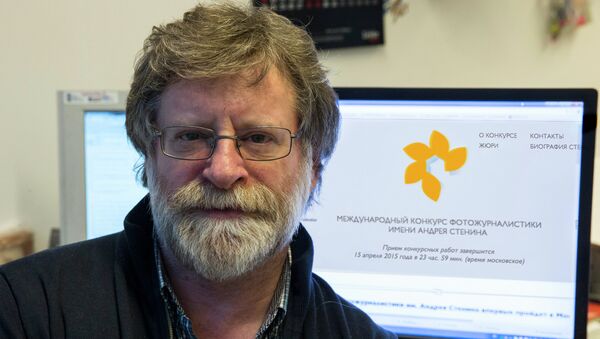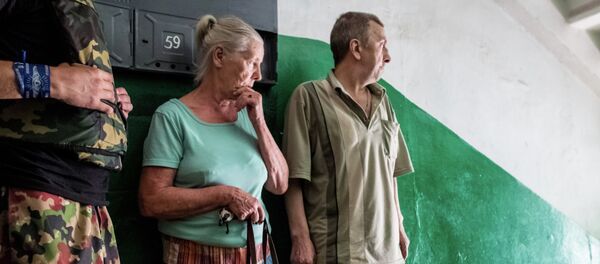Grigory Dukor, Chief Photographer, CIS, Reuters Limited Moscow Representative Office, shares his opinion on the development of global photojournalism.
Grigory Dukor: I think that the answer is simple: the contest has an age limit to sieve out older photographers. Participants up to 33 are considered young. The participation of young photographers in the contest, and especially winning it, will help them to advance their careers. So, I sit on the jury in order to support young photographers.
What kind of future do you see for photo contests, and what do you think of amateurs taking part in them?
Grigory Dukor: I believe that the future is bright for photojournalism contests. As long as there are photojournalists, there will also be photo contests. People tend to compete in order to find out who’s the best. I’m also upbeat about non-professionals wanting to participate in photo contests. Why not?
My only reservation is that they should have their own categories. They shouldn’t compete alongside professionals. If non-professionals are interested in the same issues as the professionals and they are active members of society, why shouldn’t they take part in photo contests?
I really like that more and more people are getting into photography. The fact that many amateurs take up cameras is good. This means that they will want to see what the pros are doing. That’s how the interest in photography will spread across society in general. And this is good news to me.
The gender issue in photojournalism: Should a woman be a war correspondent?
Grigory Dukor: It’s a cold hard fact that women use cameras as much as men and do as well as men in that line of business. Women see things differently. Very often, given the same situation, a female photographer will take a completely different picture than a male photographer, and that’s great. I don’t think anyone is entitled to decide what a woman can or cannot do simply based on the fact that she’s a woman.
Has the geographical map of world photography changed over the past 10 years? If yes, how?
Grigory Dukor: I won’t speak for the entire world, but I’m sure that the world map of photography has changed because of Russia.
I’ve been watching the developments in photography since the 1990s, and I’m here to tell you that photography in Russia has greatly improved.
There are many times more strong, mature and interesting photographers. There’s no denying that good professional photography has come to Russia. So, the world map of photography did grow thanks to Russia.
How are digital and other media formats influencing the professional standards of photojournalism?
All those who are into film photography and insist that all the other photographers are just victims of progress and that their work has nothing to do with creativity should have a chance to go back to the 1990s and try to capture any event, be it a rally of the 1990s, a football or a tennis match, a parliamentary session, or anything else for that matter.
Then, they should be asked to develop the film in a public restroom. Also, they must take all their pictures during the first 10 minutes of the event, not after it ended. Let them try it, and then we'll talk about creativity. I believe that digital technology has changed photography in general, and changed news photography dramatically. Most importantly, digital photography is making gigantic strides, and it’s impossible to keep in step with it. It makes me feel good.





